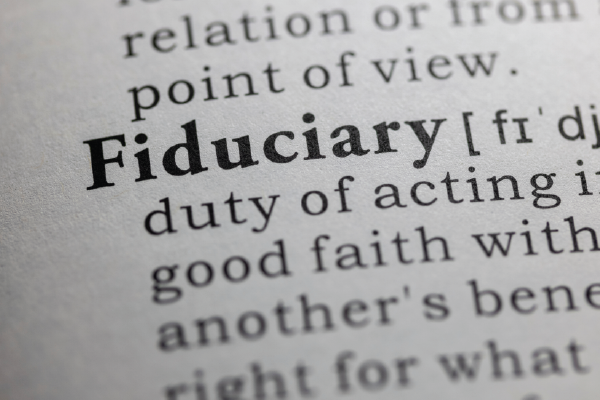What Goes Into Retirement Plan Management? Here Are the Roles You Need to Know
It’s not just the plan advisor—employee retirement plan management requires a team approach, and you should have the right questions in mind when evaluating your options as a plan sponsor.
Employee retirement plans generally have an advisor, custodian, recordkeeper, and administrator. The recordkeeping and administration functions may be provided by the same firm (referred to as a “bundled” plan) or the administration can be provided by a third-party administrator or TPA (referred to as an “unbundled” plan).
We will explore these roles in greater detail and offer you the key questions to consider when evaluating your options as a plan sponsor.
Retirement Plan Advisor
Too many plan sponsors assume that the retirement plan advisor’s responsibilities are limited to recommending and managing investment portfolios. In reality, true fiduciary advisors must be experts on all aspects of the plan’s administration.
A retirement plan advisor should protect both your company and your employees by making decisions in the best interests of the plan and its participants (your employees). Additionally, advisors working with ERISA-based retirement plans should be conflict-free when it comes to the investments, investment advice, and any other consulting they provide related to plan provisions or service providers. Any arrangement that is less than 100 percent fee-transparent could violate fiduciary precepts and may expose the plan sponsor to litigation risk.
While many retirement plan advisors calling themselves fiduciaries only fulfill the investment needs of retirement plans, a seasoned advisor can save the plan sponsor a lot of time and money by also serving as a liaison with plan service providers and consulting on other significant components of plan administration. These duties include, but are not limited to, the following:
- Shielding fiduciary liability for specific risks
- Creating an investment philosophy
- Recommending (or selecting) investment options that are objective and not tied to products offered by a plan provider (i.e., the recordkeeper, broker-dealer, etc.),
- Supporting the evaluation and fee benchmarking of other service providers; helping identify reasonably priced, objective, and transparent recordkeepers and TPAs to reduce unnecessary plan costs
- Consulting on plan design to help increase participation and maximize employees’ retirement outcomes
- Sharing insight on plan documentation central to maintaining the highest fiduciary standards
- Bolstering plan governance by meeting regularly to review the plan
- Providing objective financial education to help employees make prudent financial decisions and reduce financial stress
Retirement plan advisors offer distinct levels of fiduciary protection and service based on their ERISA designation:
- ERISA 3(38) offers maximum fiduciary protection: the retirement plan advisor manages, selects, monitors, and replaces the investments within the plan entirely and absolves the plan sponsor (employer) of liability related to the investment portfolio.
- ERISA 3(21) offers partial fiduciary protection: although the advisor provides recommendations on the selection, monitoring, and replacement of investments, they do not assume liability related to the investment portfolio.
To evaluate the capabilities of an advisor, understanding what they do and don’t provide is essential in assessing your risk as well as ensuring a better experience for employees.
Questions you should consider as you evaluate retirement plan advisors:
- Is the advisor an ERISA 3(38) or a 3(21) advisor?
- What level of fiduciary protection is offered?
- Are they willing to be a contractually named fiduciary? If so, where is it stated in the agreement?
- Are they willing to be a fiduciary at the plan and employee level?
- What expertise does the plan advisor have?
- Does the advisor have in-house Certified Public Accountants (CPAs), Certified Financial Planners (CFPs) and Chartered Financial Analysts (CFAs)?
- Which professional designation and certifications does the advisor hold?
- What is their expertise with ERISA and retirement plan administration?
- Is the advisor an expert on compliance?
- Will they help you with fee disclosure rules and disclosing costs? Do they have the expertise to know if a cost is reasonable?
- What experience does the advisor have with plan design?
- What investment expertise does the retirement plan advisor have at their disposal?
- Do they have a chief investment officer?
- Do they have Chartered Financial Analysts (CFAs)?
- What is your plan advisor’s investment philosophy? Is it evidence-based?
- Do they structure portfolios based on an evidence-based investment philosophy you agree with?
- How will the advisor help develop the Investment Policy Statement (IPS)?
- How will the advisor ensure the investment options and IPS are aligned?
- Does the advisor’s company have the exact same investment options in their own employee retirement plan as the ones they are recommending to your company? If not, why?
- What plan sponsor and participant support is offered?
- Does the advisor meet with you and plan participants on a regular basis?
- Does the advisor have in-house expertise in financial education? Is the financial education curriculum tailored to meet participant needs? Is the education objective or are they selling some investment or insurance product?
- Does the advisor have a scorecard with metrics? Do they have a plan to accomplish the metrics and report to you regularly?
- Will your advisor help you benchmark your providers and find new providers if necessary? What does their process look like for these services?
Recordkeeper and Third-Party Administrators
Many employee retirement plans have a single provider to serve as both a recordkeeper and administrator. The two roles are closely related though encompass different responsibilities. Understanding the difference between the two requires a detailed understanding of plan operations.
Recordkeepers track plan inflows and outflows and keep accounting records for plan participants. A recordkeeper focuses on transferring payroll files, maintaining employee information, distributing notices, managing loans, and providing the website for retirement plan participant accounts. The quality of the employee experience is heavily influenced by the capabilities and execution of the recordkeeper through various touchpoints including digital, direct mail, and presentations. Recordkeepers are also responsible for fielding hardship requests and handling default loans. Selecting a qualified, objective, and fee-transparent recordkeeper assures overall operations are smooth and your employees receive a high level of service.
Questions you should consider as you evaluate recordkeepers:
- How flexible is the recordkeeper when accepting the payroll file? Are different codes and locations acceptable? Or is the plan sponsor responsible for providing a single file that complies with a recordkeeper’s technical specifications? What flexibility does the recordkeeper have with data acquisition and maintenance?
- What capabilities and flexibility are available with reporting and mailing?
- How can participants make distribution requests? Online or through a paper form? How long do distributions take after the request?
- What expenses can be included in fee notices? Does the recordkeeper mail to the sponsor or directly to participants?
- Does the recordkeeper maintain an account to track ERISA expenses? And if so, what is the reporting process for the account?
- Will the recordkeeper have a dedicated team for the retirement plan? Will an enrollment specialist present in your office, stores, or worksites with the goal of a smooth, easy transition? How many visits are possible?
- Is the recordkeeper affiliated with an investment company?
- Is the website intuitive to navigate and loaded with tools such as retirement expense worksheets and planning calculators?
- What capabilities are available to make and service loans? What happens when a loan defaults?
- What security precautions are taken? Do they have a documented data-security plan?
Plan Custodian
The custodian is responsible for making distributions, taking contributions, and holding plan assets. They also pay bills to outside vendors. Custodians are often coupled with the plan’s recordkeeper (either through in-house partnerships or as a preferred provider).
Questions you should consider as you evaluate retirement plan custodians:
- How do they ensure data and thereby monetary security?
Third-Party Administrator
The third-party administrator oversees plan transactions to assure the retirement plan maintains compliance with ERISA, plan documents, and applicable tax laws.
Typical duties include management and compliance:
- Providing guidance on plan design
- Preparing plan documents
- Performing compliance testing
- Completing and filing all forms with the government
- Non-discrimination testing
ERISA, DOL regulations, and case law are complex and frequently change. Compliance is daunting, and penalties and back taxes can be significant. It is important that a third-party administrator has a good handle on retirement plan compliance for the plan sponsor.
Questions you should consider as you evaluate third-party administrators:
- What security precautions are taken? Do they have a documented data-security plan?
- Does the administrator offer financial advice? Are they “producing”? If so, be cautious of potential conflicts of interest.
- How large is the firm? What experience do they have in designing plans? Are their experts in-house? What credentials do they hold?
- What is their business philosophy? Are they transparent?
Are you looking for advice specific to your situation? Reach out to our team of retirement plan advisors.
Read more from our blog:




